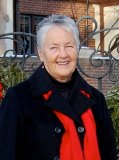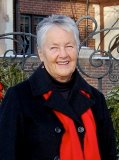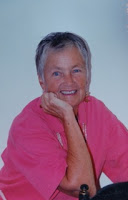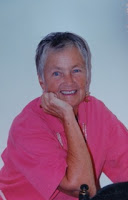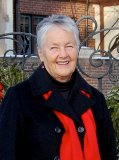My partner Gill and I often inadvertently have interesting discussions at tea time. Someone makes a statement and before we know it we find ourselves delving deeply into one subject or another.
Just a couple of days ago we got into a discussion about growing up female in the United States in the 1940‘s-50’s vs. growing up female in the U. K. in the 1940’s-50’s.
The thought that triggered this conversation had to do with confidence, rather the lack of it, in women of our generation. I am suggesting that certainly not all women but many American women raised in the 30‘s and 40‘s are more likely to lack confidence whereas British women do not. How and why did this come to pass?
I speculate that as I was growing up in middle class America I was expected to become some man’s wife and my role would be to facilitate his career, be his support staff, and to raise a family. This may not be the same for all women, but this is the message I received in some form every day of my life as a youngster. Certainly my development was not focused on learning a particular skill, pursuing a talent, or being exposed to a profession, or even learning professional behavior, or how to be assertive. Nor did I have the role models for such behavior or for such an attitude. The ultimate outcome for me was to be a wife and a mother. Mind you, there is nothing wrong or demeaning about this particular outcome, if a woman is given the choice and chooses it.
The college I attended for four years, Wells College, was founded by a man in 1868 for the purpose of providing suitable wives for the men of Cornell. This is the stated purpose of the institution, the assumption being at the time that men wanted educated wives–not so their wives could develop their own careers, of course, but so they could have intelligent conversation and have their children cared for by an educated mother.
That was the 19th century. After World War II women realized that there might be more for them than kitchens and nurseries. After all, they had had to go to work during the war to produce guns and tanks while the men were off fighting. Many women realized life might offer some choices for them. Maybe there was a life outside of the home–an interesting life. After all, raising children does not last forever–actually only a few years when taking an entire lifetime into account.
By the time I attended Wells College attitudes had become much more progressive and women were encouraged to develop a profession or a career if they so chose. So I was exposed to this attitude as a young adult in the college I attended and sometimes from other sources. I remember clearly my grandmother, whom I called “Abita,” encouraging me to think about a career in math or science. She had clipped from the paper an article pointing out the surge of interest among women in careers in science and the opportunities that were coming available, suggesting that I might be encouraged to fly in that direction. This was a brand new idea to me–something I had never considered.
By the time I graduated from college, I no longer saw myself as a wife alone, but perhaps as a wife and a member of one of three professions which by that time had been assigned to women: nursing, teaching, and social work. In 1957 it was quite acceptable, even promoted, that a woman could have a career and a husband. However, despite the changes in the attitudes and the social norms of the time, the message I received from the adults in the early years of my life were a part of my psyche.
Listening to partner Gill’s description of growing up female in Britain, I realize there is a contrast, but at the same time, the image is the same–much like a mirror image.
In Britain, at least in Gill’s experience and the experience of most of the females she knew, girls grew up with the expectation that they would be independent, able to take care of themselves, if needed, and it turns out that it was needed thanks to two world wars. Girls would marry and raise families, and they would be making choices for themselves all along. British women, according to her story, were raised to be strong and independent–in contrast to American women who were supposed to be happily dependent and at least appear to be the demure little wife sitting at home taking care of the house.
Interesting mirror image! The same, but turned around. But why not, I say. Look at the role models the British women have: Elizabeth, Victoria, the current Elizabeth. The kings, with a few exceptions, messed up. But the queens–just look at them. And what did our ancestors who were British do with that heritage? They chose to leave the country and sail across the ocean and start a new country where there would be no monarchy–no role models.
Besides that, two world wars in Europe had taken out a huge chunk of the British male population. World War I in particular. It was not a given for a woman in 1930’s Britain that she would become someone’s wife, she knew that she would very likely soon become someone’s widow. Men were in short supply during both wars. The women had been left at home to run the household and to continue doing so when their men did not return from war. It was the women who raised the next generation of adults in post war Britain. These adults certainly did not grow up with a vision of females as being anything but strong and self sufficient.
This topic can certainly stand on its own as an opportunity for further consideration, writing, and listening, or another discussion at tea time. But in this case I will leave it here with the two similar and opposing images to contemplate.
About the Author
Betsy has been active in the GLBT community including PFLAG, the Denver women’s chorus, OLOC (Old Lesbians Organizing for Change). She has been retired from the Human Services field for about 15 years. Since her retirement, her major activities include tennis, camping, traveling, teaching skiing as a volunteer instructor with National Sports Center for the Disabled, and learning. Betsy came out as a lesbian after 25 years of marriage. She has a close relationship with her three children and enjoys spending time with her four grandchildren. Betsy says her greatest and most meaningful enjoyment comes from sharing her life with her partner of 25 years, Gillian Edwards.
